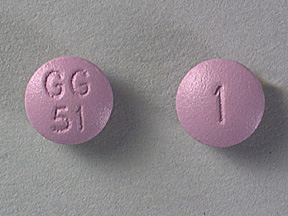
Trifluoperazine Coupons & Savings Card – Discount Prices from $11.42
Trifluoperazine is a medication prescribed primarily for the treatment of schizophrenia and certain mood disorders. As a first-generation antipsychotic, it works by balancing natural chemicals in the brain, particularly by reducing the brain's sensitivity to dopamine changes. This action helps alleviate symptoms like delusions and hallucinations. While effective, trifluoperazine is generally not recommended for long-term use due to the risk of movement-related side effects. Always consult with a healthcare professional before starting or changing any medication regimen.
Our coupons are free to use. Before paying, show the pharmacist your Trifluoperazine savings card to get your free discount. Use our filters below to edit the prescription box to match your needs. The Trifluoperazine prices will update based on your prescription needs. Above our Trifluoperazine coupons, you can change your location to see pharmacy prices and costs in other areas. We're here to help you buy Trifluoperazine at the lowest price with our prescription discount card.
My prescription
Edit
1MG, Trifluoperazine (30 Tablets)
Select pharmacy

CVS
$21.03
COUPON PRICE
Walgreens
$11.42
COUPON PRICE
Walmart
$16.00
COUPON PRICE
Albertsons
$16.06
COUPON PRICETrifluoperazine savings card
Show this card to your pharmacist
Walgreens
$11.42
BIN
ID
PCN
GRP
015995
LHKPW536431
GDC
DR33
Powered by
Trifluoperazine is a medication prescribed primarily for the treatment of schizophrenia and certain mood disorders. As a first-generation antipsychotic, it works by balancing natural chemicals in the brain, particularly by reducing the brain's sensitivity to dopamine changes. This action helps alleviate symptoms like delusions and hallucinations. While effective, trifluoperazine is generally not recommended for long-term use due to the risk of movement-related side effects. Always consult with a healthcare professional before starting or changing any medication regimen.
Our coupons are free to use. Before paying, show the pharmacist your Trifluoperazine savings card to get your free discount. Use our filters below to edit the prescription box to match your needs. The Trifluoperazine prices will update based on your prescription needs. Above our Trifluoperazine coupons, you can change your location to see pharmacy prices and costs in other areas. We're here to help you buy Trifluoperazine at the lowest price with our prescription discount card.
Related typical antipsychotics prescriptions
coupons from$26.75Save 73%
coupons from$102.41Save 84%
coupons from$14.41Save 64%
coupons from$34.49Save 48%
coupons from$55.06Save -60%
coupons from$892.61Save 4%
More prescriptions for schizophrenia
coupons from$6.37Save 82%
coupons from$102.41Save 63%
coupons from$36.65Save 51%
coupons from$10.52Save 95%
coupons from$604.09Save 15%
coupons from$6.26Save 92%
coupons from$60.43Save 91%
coupons from$10485.21Save 73%
Related typical antipsychotics prescriptions
Thiothixene Save 73%coupons from $26.75
Asenapine Save 84%coupons from $102.41
Perphenazine Save 64%coupons from $14.41
Chlorpromazine Save 48%coupons from $34.49
Thioridazine Save -60%coupons from $55.06
Molindone Save 4%coupons from $892.61
More prescriptions for schizophrenia
Quetiapine ER Save 82%coupons from $6.37
Saphris Save 63%coupons from $102.41
Paliperidone ER Save 51%coupons from $36.65
Seroquel Save 95%coupons from $10.52
Zyprexa Relprevv Save 15%coupons from $604.09
Abilify Save 92%coupons from $6.26
Opipza Save 91%coupons from $60.43
Invega Trinza Save 73%coupons from $10485.21
Trifluoperazine dosage forms
Use our Trifluoperazine 1MG coupon with prices from $16.00 for 30 Tablets. You can also use our Trifluoperazine 1MG coupon with prices from $1.01 for 1 Tablet. We have a Trifluoperazine 1MG coupon with prices from $35.40 for 100 Tablets. You can use our Trifluoperazine 2MG coupon with prices from $3.33 for 1 Tablet.
Dosage Quantity Price from Per unit 1MG 30 Tablets $16.00 $0.53 1MG 1 Tablet $1.01 $1.01 1MG 100 Tablets $35.40 $0.35 2MG 1 Tablet $3.33 $3.33 2MG 30 Tablets $20.05 $0.67 2MG 100 Tablets $32.14 $0.32 2MG 180 Tablets $36.81 $0.20 5MG 1 Tablet $3.34 $3.34 5MG 90 Tablets $23.56 $0.26 5MG 100 Tablets $24.14 $0.24
| Dosage | Quantity | Price from | Per unit |
|---|---|---|---|
| 1MG | 30 Tablets | $16.00 | $0.53 |
| 1MG | 1 Tablet | $1.01 | $1.01 |
| 1MG | 100 Tablets | $35.40 | $0.35 |
| 2MG | 1 Tablet | $3.33 | $3.33 |
| 2MG | 30 Tablets | $20.05 | $0.67 |
| 2MG | 100 Tablets | $32.14 | $0.32 |
| 2MG | 180 Tablets | $36.81 | $0.20 |
| 5MG | 1 Tablet | $3.34 | $3.34 |
| 5MG | 90 Tablets | $23.56 | $0.26 |
| 5MG | 100 Tablets | $24.14 | $0.24 |
| 10MG | 1 Tablet | $1.01 | $1.01 |
| 10MG | 60 Tablets | $24.77 | $0.41 |
| 10MG | 100 Tablets | $37.08 | $0.37 |
